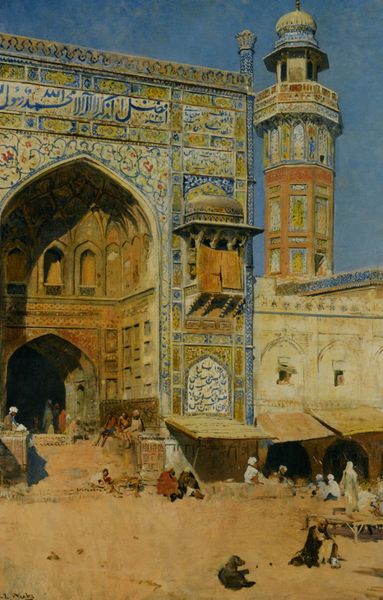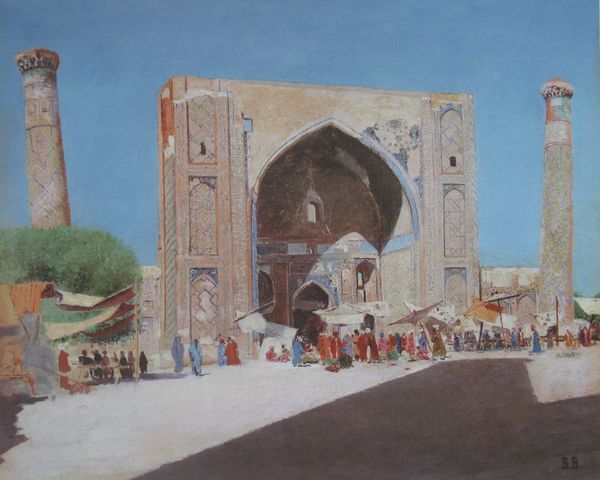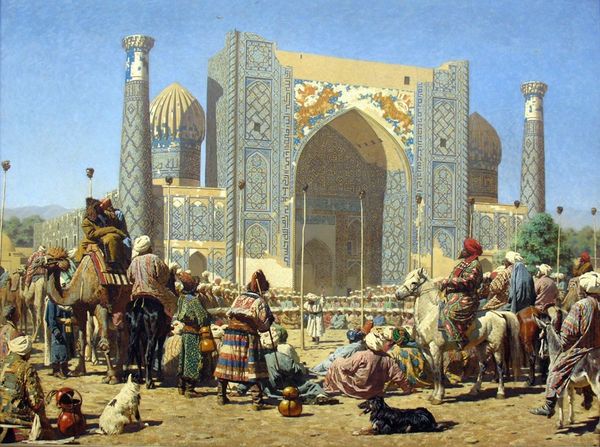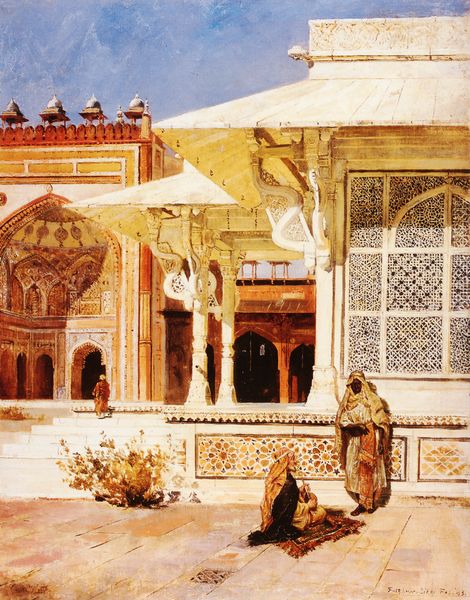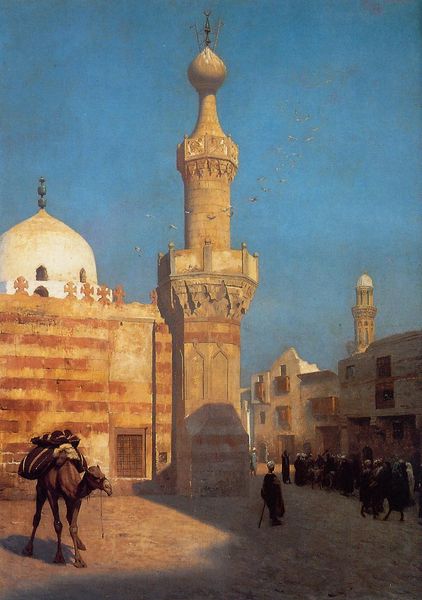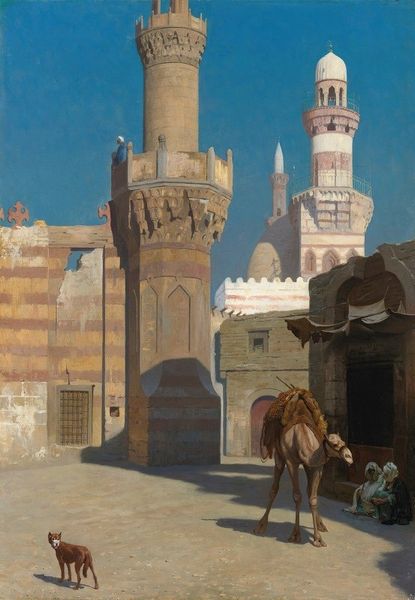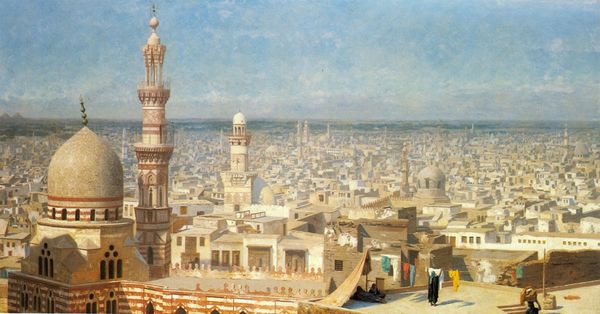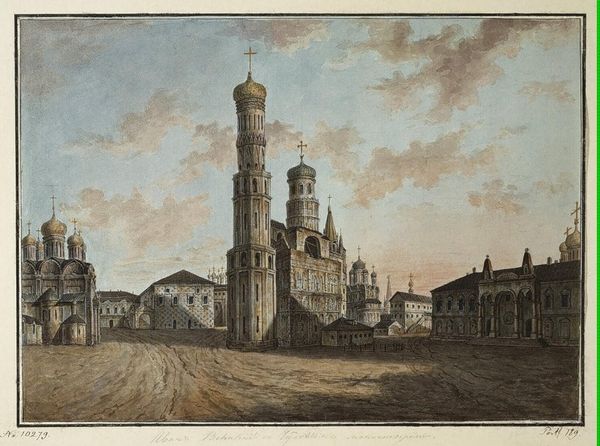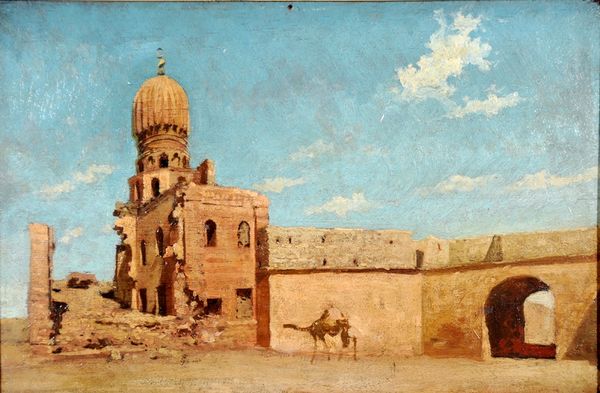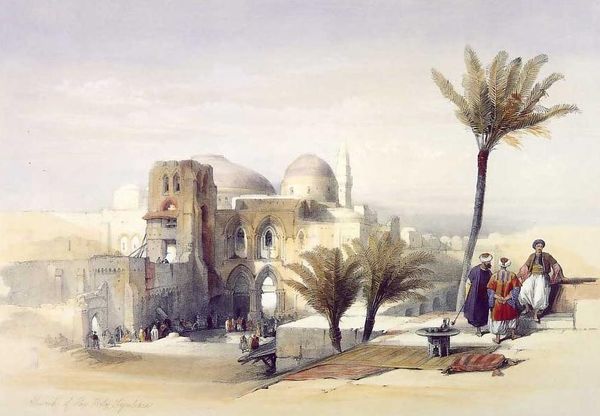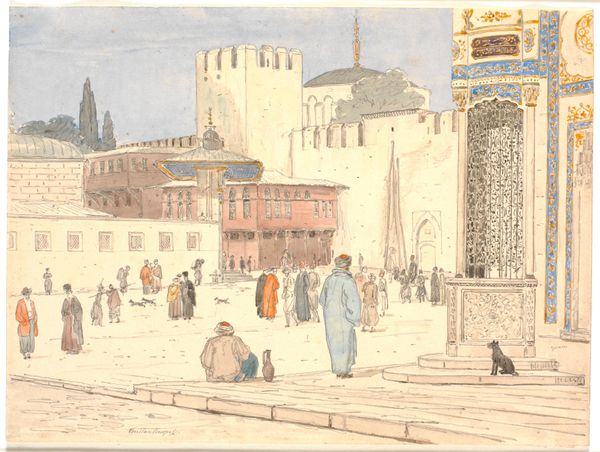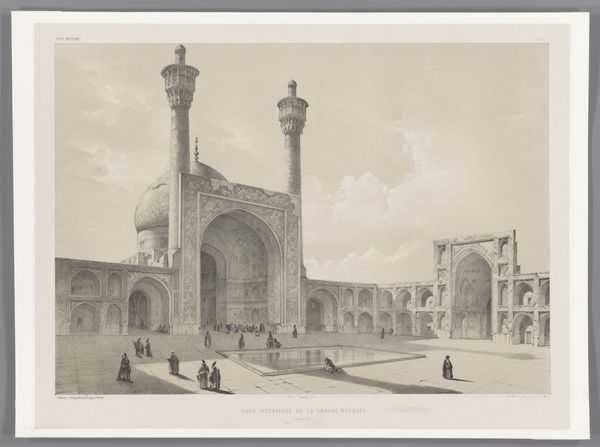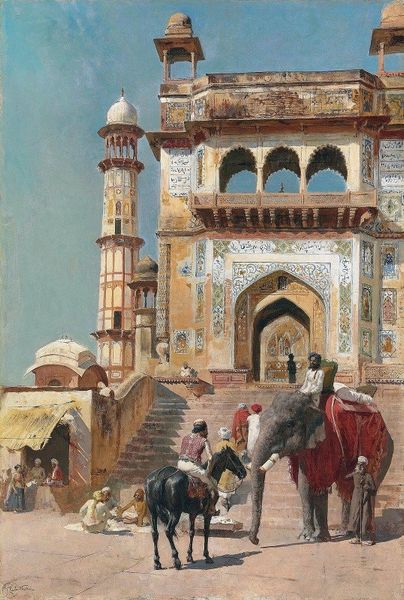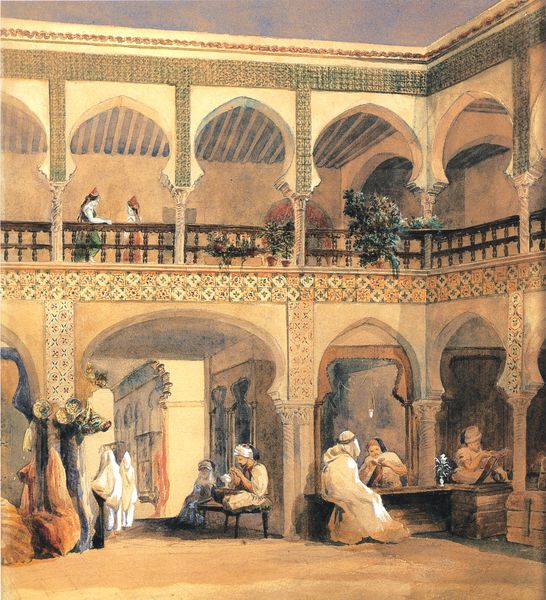
painting, oil-paint
#
public art
#
urban landscape
#
16_19th-century
#
painting
#
oil-paint
#
landscape
#
oil painting
#
orientalism
#
cityscape
#
islamic-art
#
realism
Copyright: Public Domain: Artvee
Vasily Vereshchagin made this oil-on-canvas painting of the Medrasah Shir-Dhor in Samarkand, and it shows us a great deal about the relationship between art, labor, and cultural exchange. Vereshchagin’s meticulous brushwork captures the building’s decorative surfaces, which are a testament to extraordinary craftsmanship. The elaborate tilework, with its intricate geometric and floral patterns, was likely created by skilled artisans using techniques passed down through generations. The sheer amount of labor involved in producing these surfaces is staggering, and speaks to a culture that values both artistic expression and precise execution. Consider too the context of the painting. Vereshchagin was a Russian artist, and his depiction of Samarkand reflects a fascination with, and perhaps an idealization of, Central Asian culture. It suggests the complex intersection of artistic vision, cultural appropriation, and the global circulation of aesthetic ideas. By focusing on the making of both the painting and the building it depicts, we can gain a deeper appreciation of the diverse artistic traditions and labor practices that have shaped our world.
Comments
No comments
Be the first to comment and join the conversation on the ultimate creative platform.
